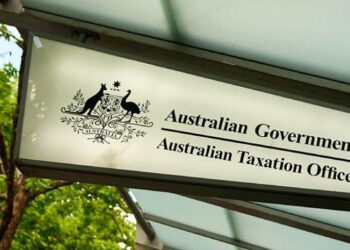The JAWG, a coalition of 11 industry and professional bodies representing financial advisers, stockbrokers, accountants, superannuation trustees and investors, said crucial amendments need to be made to avoid significant unintended consequences and unfair outcomes for consumers, small businesses, advisers and the government.
In a statement, the JAWG said it has identified four key issues that need to be addressed before the bill is legislated, including the major concern of taxing unrealised capital gains.
It has also highlighted the absence of indexation, which it said will lead to generational inequity and unnecessary uncertainty for the superannuation system.
It has asked for clarity on the proposed treatment of members in defined benefit funds, especially those already in receipt of pensions, and more analysis on the impact of material increases to liquidity requirements for funds holding large and unlisted assets such as family farms and business real property.
“Applying different tax rates on capital gains, both notional and realised, is unnecessarily confusing and complicated,” the statement said.
“The JAWG has broad industry concerns about the consequences of this approach, including both the impact on small business and primary producers who hold their small business premise and primary production land in an SMSF, and the constraints of applying these provisions in large funds.”
It noted there are other ways of reducing the tax concessions available to individuals with large superannuation balances that do not involve taxing unrealised capital gains and recommended the removal of schedules one to three from the bill to enable more holistic consultation on measures that achieve the government’s objective of achieving greater equity, and which are consistent with existing taxation principles.
“According to ATO statistics, over $90 billion of commercial property, mainly small business premises and primary production land, is held by SMSFs. Industry research estimates around one in four SMSF members, impacted by this tax (13,500 SMSF members) hold real property in their fund,” it said.
“Including unrealised capital gains in the calculation of earnings is likely to cause liquidity stress for many individuals and business entities impacted by this tax. The University of Adelaide estimates that had this tax been introduced in the 2021 and 2022 financial years, over 13 per cent of impacted members would have experienced liquidity stress in meeting the new tax obligations.”
Additionally, it stated that some small-business owners will be forced to sell their business premises to save their business and claimed selling such assets is typically associated with substantial transaction costs and market timing considerations that are likely to further exacerbate potential losses and introduce other investment risks.
“The treatment of unrealised capital gains and carried forward losses in the schedules presents substantial challenges given the nature of capital markets. It is not uncommon to see several bull market years followed by a sharp market decline,” it said.
“This means many members will effectively be cumulatively taxed on investments that make an overall loss when eventually sold without any real recourse to recover the tax already paid.”
The statement continued that including unrealised capital gains in the calculation of earnings means an individual’s year-on-year tax liability will be directly related to the performance of investment markets, adding to the unpredictability and making liquidity management extremely difficult.
“The JAWG notes the root cause of these issues is the departure of the use of actual taxable earnings as the basis for calculating ‘earnings’. Including unearned income in the calculation immediately gives rise to unintended consequences and inequitable outcomes,” it said.
“The JAWG acknowledges the constraints and limitations faced by some funds in tracking actual taxable earnings allocated to a member. However, one alternative could be the use of an earnings rate that is a close proxy for actual taxable earnings. The 90-day bank bill rate is used in other areas of the superannuation legislation to approximate earnings.”
Finally, the JAWG stated it is also calling for the indexation of the $3 million threshold by average wage increases to ensure it retains its relative value, promoting stability and equity in the superannuation system.
“Leaving the cap unindexed would mean over 500,000 current taxpayers would be adversely affected by the time they retire, or over six times current government’s estimate. Further, a 30-year-old today will have a real cap of around $1 million in today’s dollars,” it said.



The new super tax threshold (if it passes) should be set at double the Transfer Balance Cap. One less number in the system and guaranteed indexation.